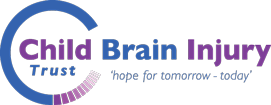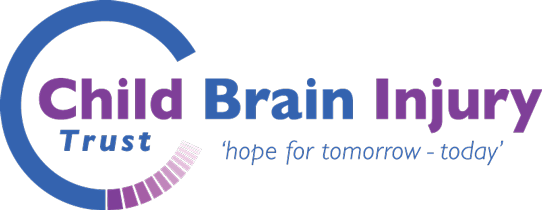 Schools are looking to return in the coming weeks. What will this look like? Will there be any transitions? Will my child have to go straight to secondary school? Is my EHCP application affected? Is my SEN provision still going to be there?
Schools are looking to return in the coming weeks. What will this look like? Will there be any transitions? Will my child have to go straight to secondary school? Is my EHCP application affected? Is my SEN provision still going to be there?
All questions that are very valid, asked often and so important to consider at this time. Parents have shared their concerns with me more recently on the topic of education and I am sure that they are also on the ‘tip of the tongue’ of many other parents to. Every family is facing their own unique challenges and have different apprehensions too. Some children can’t wait to burst back through the door to see friends, some are very anxious and some are just about getting used to their ‘new normal’ home/school routine and are worried that another change will not be welcomed.
In this blog post today, we will be thinking about educational transitions and thinking about what we can do to help to manage and support you through these times. Especially, as some of you have probably received notification letters of our children’s newly named schools ready for the September term.
Unfortunately, times are still very uncertain for us all. However what we can do to help is to plan and prepare for all instances.
As a charitable organisation, supporting children, young people and families through their brain injury journey, we are (as so many organisations are) finding ourselves adapting to change and adjusting to new normal working methods. We may all be juggling the home working challenges, working on the front line or as key workers, but we want you to know that we are still here to support you though these changes and that we still have the support and learning available to support transition periods, not only for families, but for educational professionals too. We are still providing remote educational support via our ABI Coordinators and providing access to information and learning online, all with the expert knowledge to support transitions for children with a brain injury.
We are keeping our social media platforms and our website updated with any news as it arises and you can find out information directly from the department of Education here; https://www.gov.uk/government/organisations/department-for-education
For now, here are some tips to help you begin to plan and prepare for educational transitions. That may include from COVID-19 to school, primary to secondary or even secondary to college.
- For those going back to their same school, it is important to try and keep communication open where possible. That could include liaising virtually with your key worker/key personnel to share concerns and begin discussing what transition could look like for your child. Ask if a virtual meeting is possible and use the technology available to keep in touch with them as much as possible. Most importantly, share your concerns.
- For those going to new schools we can plan and prepare by getting to know the new school team. Ask for staff photos of key personal as some already have pictures on their website (where permissible). View the new school’s SEN policy and other policies. Get to know your new school virtually. Some schools are beginning to have virtual tours that you can visit.
- All schools will have a SENCo and/or usually a Pastoral Lead too, so introduce yourself and your child and make initial contact. Share your story and talk to your SENCo or pastoral support about your concerns and ask them how they can help.
- Talk to your child about returning to school, discuss any fears and concerns that they may have. Make a list/draw a picture and ask how they would like this to work for them.
- For a child with a brain injury that has not yet gone back to school following their injury, we may think about having a graded/phased return to school. Discuss this with the school team and think how this would practically work for your family at this time.
- Create a school scrap book using website pictures and key personal photos.
- Ask for a map of the school to begin to look though.
- Ask for timetable examples to begin to look at what the structure of a secondary school is like.
- Print equipment lists and creating checklists.
- Google map the routes to and from school.
- Find out about pastoral care in the new school or existing school if there are worries about returning after a long period of time.
- Ask about the school’s buddy system or mentoring procedure for social support, interaction and participation support.
- Think about the physical environment of the schools and if the child’s needs may need additional support, think about how this will impact on a long school day following a period of being at home.
- Promoting strength-based activities. For example, if your child likes Art, perhaps begin to look at starting with an art lesson as a way of transitioning.
- Share information and let the professionals know that there is training and support available for them too.
For more information and further advice for parents/carers and professionals on Transition from Primary to secondary, please see our factsheet via the link below.
https://childbraininjurytrust.org.uk/wp-content/uploads/2018/11/Transition-Primary-to-Secondary.pdf
The child brain injury trust has also produced several learning tools for teachers and schools which include eLearning, Factsheets and a booklet produce in partnership with NASEN
https://childbraininjurytrust.org.uk/wp-content/uploads/2018/11/ABI-Mini-Guide.pdf
The child brain injury trust has also produced a fun and interesting ‘brainy’ curriculum-based home-schooling plan which can be accessed via the link below.
https://childbraininjurytrust.org.uk/home-schooling/
How will this affect my SEN provisions or my application for an EHCP?
Ipsea have put together a really helpful Q & A guide in response to Covid-19 and answers some of the most frequently asked questions. To date, there are no changes to the legal obligations of the Local Authorities in terms of applying/reviewing/assessments/tribunals of an EHCP, however under the Covid-19 ACT there could be certain planned changes. Check out Ipsea’s information via the link below:
https://www.ipsea.org.uk/news/ipsea-update-on-covid-19-school-closures-and-sen-provision
Above all, remember that you are doing your very best in these difficult times. We are all doing our best given the resources that we have available to use at this time. We will come through this given time, support and guidance: we are all in this together.
Take care
Sharon
ABI Coordinator (Midlands)
Child Brain Injury Trust
Other helpful sources of information in relation to education can also be found from the following sources.
Department for Education:
UKABIF:
https://ukabif.org.uk/page/Coronavirus
Disabled Children’s Partnership:
https://disabledchildrenspartnership.org.uk/coronavirus/
Council for Disabled Children:
https://councilfordisabledchildren.org.uk/news-opinion/news/covid-19-support-and-guidance

